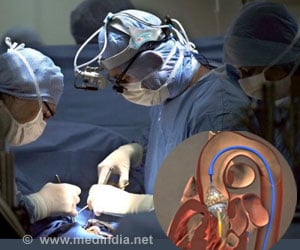Rome's school cafeterias are enjoying a nutrition revolution as tens of thousands of children sit down to healthy, eco-friendly meals under strict rules.
Rome's school cafeterias are enjoying a nutrition revolution as tens of thousands of children sit down to healthy, eco-friendly meals under strict rules.
At the November 4 Elementary School in the Italian capital, for example, the menu includes rice and tomatoes, omelettes, boiled celery and oranges, served on biodegradable plates and cups.For snacks, the children get fair trade cocoa-and-honey cookies and chocolate bars as well as bananas from the Dominican Republic, Colombia, Ecuador and Peru.
The revolution was long in coming in the land of pasta, first initiated in 1999 by then mayor Francesco Rutelli, a former Green who is now culture minister.
But Italy has long been a haven for quality cuisine, and taken a lead -- as home of the not-for-profit Slow Food movement founded 20 years ago in the northern Piedmont region -- in bucking the downside of fast-food culture.
Even Italian hospitals this year signed onto the "Slow Food" recipe for quality.
The schoolchildren, some of whom are obese, range in age from five to 10.
Advertisement
About 40 teachers concerned that the utensils are dangerous mounted a legal challenge to the change, but eventually backed down.
Advertisement
Recipes developed by nutritionists must be followed to the letter, calories meticulously counted, and each meal must include a minimum of 30 percent fruit and vegetables, by weight.
"Everything is spelled out," says city official Silvana Sari. "There's no room for manoeuvre for the supplier."
All food is organic except for meat and fish products, up from an organic portion of only 10 percent in 2001, she noted.
The cost per meal has gone up around 50 euro cents (75 US), to five euros, of which parents pay two euros.
"It was easier to convince the children than the parents and teachers," Sari said, adding: "But now everyone is imitating us, both in Italy and abroad."
French Agriculture Minister Michel Barnier, a recent visitor to the school, wants to have fruit distributed free to French schools.
"It was difficult to get the children to eat fruit and vegetables, but now that they are used to it they all eat (at least) a little," said Angela Di Nicola, the school principal.
Sari's rules forbidding second helpings of pasta may spur a better liking for vegetables, while more and more parents have stopped giving their children snacks such as slices of pizza to eat during play periods.
The children seem to understand the benefits of organic food.
"It's good for us," said seven-year-old Federico, while Sonia chimed in: "It helps you grow."
The children are given carrot slices and cherry tomatoes when they go on field trips.
One popular holdover from the old regime is ice cream -- although it is allowed only twice a week.
The reasoning is sound: its organic equivalent is much higher in calories.
"They eat what we give them," Di Nicola said.
Source-AFP
LIN/P







